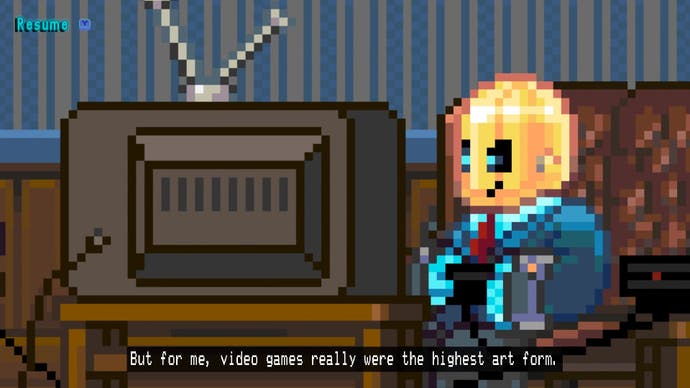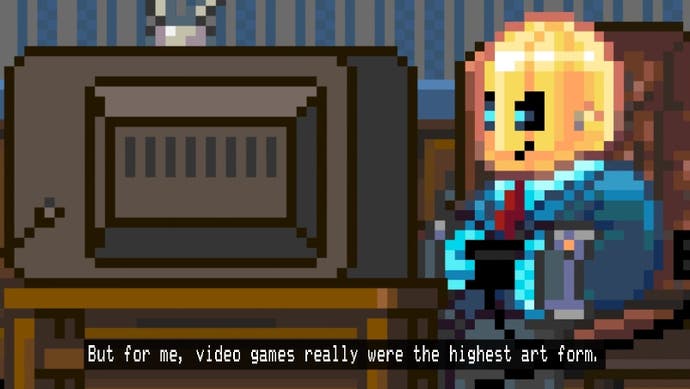The exceptional Horace is Earthbound through a very British filter
Earthbound and down.
Please don't make the same mistake I made. When Horace came out last month, it was all too easy to dismiss it as just another cutesy indie platformer drowning in references to the classics. Well, that's exactly what I did, and it's only now that I'm catching up on this densely detailed, hugely enjoyable work of real warmth. It is cute, and is drowning in references, but it's also one of the most winningly human games I've played - and I'm not just talking about this year.
Maybe that rich vein of humanity comes from Horace's genesis, it being the culmination of six years of work primarily from a sole developer - one Paul Helman - along with the help with some of his friends. Helman's something of an industry veteran, although Horace has the energy and anarchy of great outsider art, fizzing with exciting contradictions and match-ups. Horace is billed as a triple-A platformer, its action interspersed with fully narrated cutscenes that tell a rich, frequently funny and genuinely moving Pinocchio-esque story of a robot brought to life.
The warmth and wackiness throughout Horace reminds me of that other great piece of video game outsider art, Shigesato Itoi's Earthbound, albeit through a very British filter - and a filter that's best if you're of a certain vintage. Before the title screen there's a riff on the old Thames Television ident, while the writing is full of allusions and lifts from Spike Milligan and Douglas Adams. Even the main character himself is a not-so-subtle nod to William Tang's ZX Spectrum series of the 80s - and it says so much for Horace that it feels every bit the rightful successor to the anarchy and jollity that coursed through so much British software of the era.

So yes, Horace is thick with references, though they're not cloying - they're merely the backdrop to a gently told story of an emerging consciousness, forming the fabric behind the same awakening many of us would have had in our teens in whatever godforsaken corner of this rainy isle that we grew up on. It's all rainy afternoons and rundown housing estates with the splashes of colour provided by trips to the VHS rental store and the local arcade.
It's how all that comes together that Horace really impresses. Pop by an arcade and you can play gems like Day Off, an Outrun-esque racing game where a group of teens take their friend's dad's car for a day trip to Chicago, for instance, though the moment I truly fell in love with Horace came well before that; during an early wigout scene, Horace does a more than passable pixelart take on Douglas Trumbull's stargate sequence for 2001 that then segues perfectly into a pastiche of Sega's Super Scaler games, scrolling through from Space Harrier to Outrun. Super scaler technology meets slit scan photography? My heart practically melted.
Oh, and I've hardly mentioned how Horace is an excellent platformer too, full of as much invention as you'll find elsewhere. It's a Metroidvania in parts, with neat gadgets such as the anti-grav boots that can turn levels into Mario Galaxy-esque arenas of mind-bending possibility, and with new ideas folded in with pleasing pace. I'm still only partway through Horace - it's a surprisingly generous game, with a runtime of around a dozen hours - but I'm so excited to play more. Don't stick around for me to finish it, though, and don't make the same mistake I did. Horace really could be one of the most charming games of the year.


